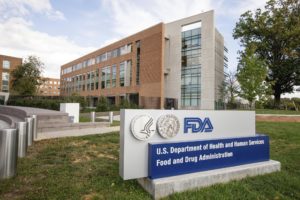Editors from six major medical journals, including The Lancet and Science Nature, have expressed serious concerns about the fact that the U.S. Environmental Protection Agency (EPA) appears to be relying less and less on sound scientific evidence in its regulatory decision-making process. Last week, the editors published a joint statement in their respective medical journals, taking to task the EPA’s proposed “Strengthening Transparency in Regulatory Science” rule, which was introduced in May 2018. According to the editors, it appears that purpose of the proposed rule is to suppress the use of scientific evidence in crafting major public health regulations. Most significantly, the EPA’s proposed rule would apply retroactively, which could influence important public health regulations that are already in place.

At issue is the EPA’s “Strengthening Transparency in Regulatory Science” rule, which states that the agency, when making regulatory decisions that impact public health, would bar the use of any scientific research that is not publicly available for independent validation. Under the rule, which the EPA calls a step towards transparency, the regulatory agency wouldn’t even consider an academic study’s conclusions unless researchers agreed to divulge all of their raw data, including confidential medical records. Concerns about a rule that appears to limit the scientific and medical research the government can rely on to write public health regulations first emerged in May 2018, when the EPA introduced its “Strengthening Transparency in Regulatory Science” rule, and these concerns have reached a high point following a hearing the EPA held on the proposed rule and the role of science in regulatory decisions on November 13.
According to the EPA, the disclosure of raw scientific data under the “Strengthening Transparency in Regulatory Science” rule would allow the agency to independently verify the conclusions of academic studies in order to ensure the use of the “highest quality science” in making regulatory decisions. EPA administrator Andrew Wheeler says, “Good science is science that can be replicated and independently validated, science that can hold up to scrutiny.” Those opposed to the EPA’s proposed rule, however, argue that the it could potentially prevent the use of a great deal of important, scientifically sound data simply because the data is anonymous or not publicly available. For instance, if a study keeps the identities of the individuals involved in the study confidential in order to protect their privacy, the EPA could theoretically block the use of the study in writing new public health rules, no matter how reliable and sound the scientific data may be.
“Datasets featuring personal identifiers – including studies evaluating genomes of thousands of people to characterize medically relevant genetic variants – are but one example” of science that could be barred under the EPA’s proposed rule, the medical journal editors write in their joint statement. “Such data may be critical to developing new drugs or diagnostic tools but cannot be shared openly; even anonymized personal data can be subject to re-identification, and it has been a long-standing practice for agencies and journals to acknowledge the value of data privacy adjustments.” Public health experts warn that the EPA’s proposed rule could block research that has been used for decades to prove, for example, that lead patient exposure can result in behavioral disorders in children or that mercury poisoning from coal plants can interfere with brain development, when existing regulations come up for renewal.
Rather than promoting transparency in scientific and medical research, the EPA appears set on excluding from consideration valuable, scientifically sound studies that could have a significant impact on new regulations, which the National Association of Pediatric Nurse Practitioners warns could “ultimately result in weaker environmental and health protections and greater risks to children’s health.” In their joint statement opposing the rule, the editors of the medical journals write: “We urge the EPA to continue to adopt an approach that ensures the data used in decision making are the best available, which will at times require consideration of peer-reviewed scientific data, not all of which may be open to all members of the public. The most relevant science, vetted through peer review, should inform public policy. Anything less will harm decision making that claims to protect our health.”